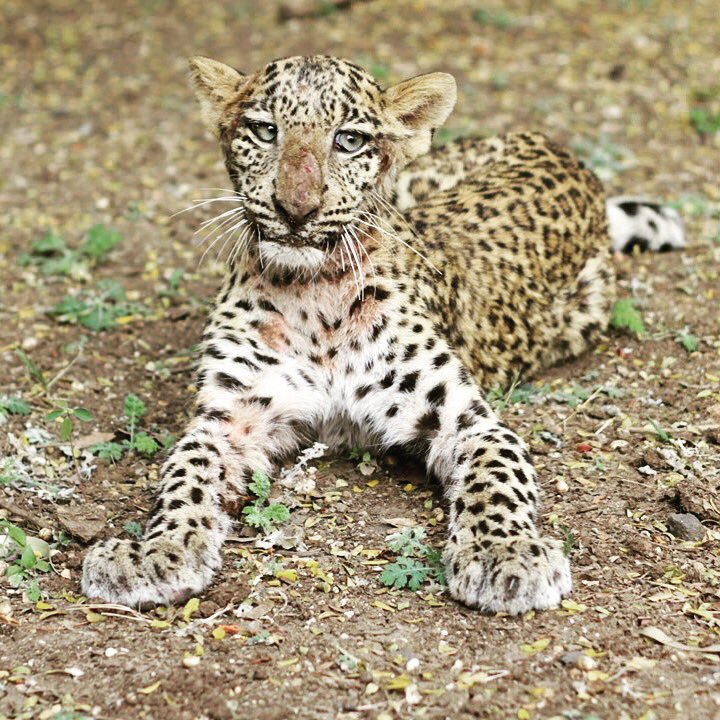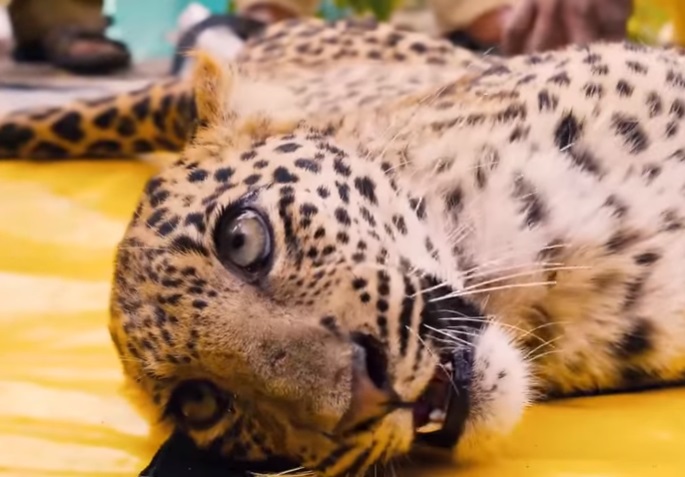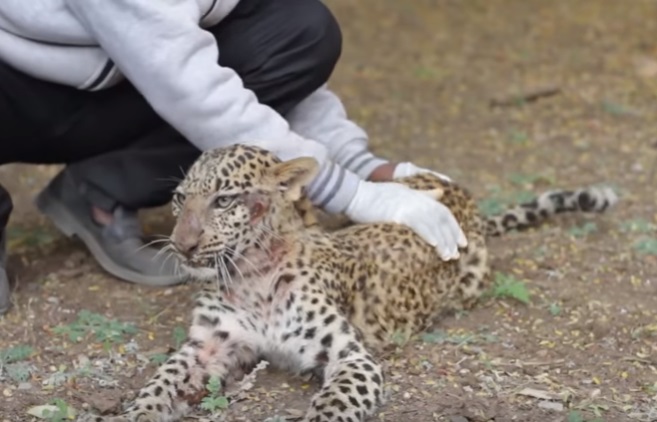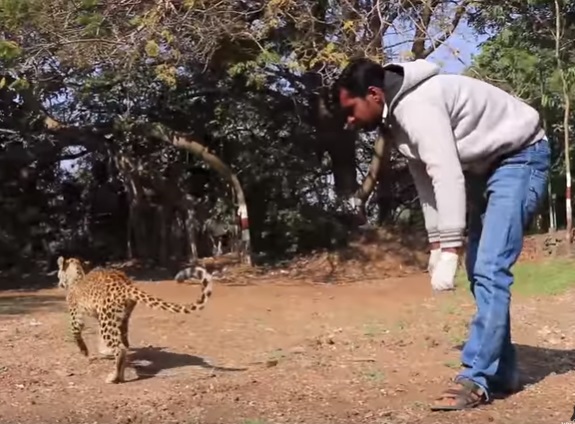Watch Leopard Cub Make Her First Steps After Getting Paralyzed In A Traffic Accident!
[rumble video_id=v4k5rz domain_id=u7nb2]
A paralyzed 7-month-old leopard cub was forced to relearn how to walk after being involved in a horrific car accident caused by a reckless driver in Maharashtra, India.
After the speeding driver crashed into the little cub, the animal was left paralyzed and at the mercy of Wildlife SOS rescuers who brought her into their rescue center.
“A 7-month-old leopard cub was left paralyzed after it was critically injured in a road accident when trying to cross the road in near Maharashtra,” Wildlife SOS India wrote in a post in February.
“The young feline is currently undergoing medical treatment and physiotherapy with help from experts at WildlifeSOS.”
While the leopard’s situation didn’t look very promising, the rescuers were determined not to give up on her and help the cub walk again.
Following the accident, Dr. Ajay Deshmukh, a senior veterinarian, took the young leopard under his care and dedicated a team of professionals to assist the animal with stretching and massage.
Thanks to the strict rehabilitation plan and a basket of patience, Deshmukh and the team quickly started noticing results as the cub was regaining control of its muscles.
“The cub’s undaunted spirit to heal and get back on her feet has been truly inspiring. Her recovery has been miraculous and we are grateful to the Forest Department for supporting our efforts to give this cub a second chance at life,” the vet said in an interview with Mid-Day.
Five months after getting admitted at the rescue center, the leopard cub was finally able to make her first steps following the paralysis.
The rescuers’ battle, however, did not end there. After the cub’s recovery, Deshmukh and his team worked hard to reintroduce the leopard into her natural environment and allow her to run around freely once more.
As the CEO and founder of Wildlife SOS, Kartick Satyanarayan, pointed out, the leopard cub in this story is “just one among hundreds” of victims of reckless driving.
“The absence of wildlife corridors is one reason for the recurring of such cases.
On finding their territory and prey base depleting due to the unwarranted invasion of their natural habitats, wild animals are constantly forced to seek out other means for survival, usually by becoming dependent on human habitation,” he explained.
“Unaccustomed to the noise and flow of traffic, the animals face problems while navigating the busy roads amidst speeding vehicles.”
What are your thoughts on this cub’s recovery? Let us know in the comments and don’t forget to SHARE this post with your friends and family!






